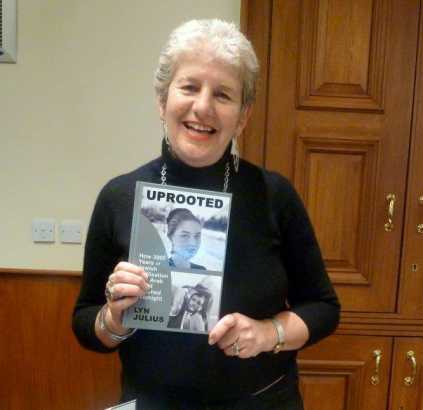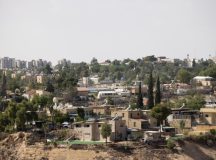Lyn Julius replies again to Sam Shube. For their earlier exchanges see here, here and here.
Sam Shube finds curious the argument that one of the reasons why Mizrahim voted for right-wing parties is the 2021 riots in mixed cities. But why? Not only was intercommunal violence on this scale a new and alarming phenomenon; for Mizrahim, many of whom settled in cities like Lod, Ramle or Akko, the threat was not from missiles, or wars, or even terrorism. It was on their very doorstep, and came from their Arab neighbours. The rioting was just the latest manifestation of the perennial latent Arab threat: law-and-order issues have made Israelis vote for the right over the last 35 years and more. Security issues, they reason, warrant a firm response, and they are confident that Likud could provide it.
All Israelis – Ashkenazim or Mizrahim – living in the south are threatened by the overspill of Bedouin community violence. The difference might lie in their diagnosis of the problem. Liberal Ashkenazim believe in accommodating grievances, building cultural bridges, offering compromise, meeting the Other halfway. Having lived among Arabs, Mizrahim understand that compromise might be interpreted as contemptible weakness, not generosity or magnanimity. And thus they favour a show of strength in the face of adversity.
The concept of ‘shame-honour’ prevalent in tribal Arab societies is not ‘reductionist’ – it is a cultural phenomenon widely recognised by ethnologists and anthropologists. It explains a pattern of behaviour throughout Arab history: it is not the history itself. Loyalty to the collectivity and the preservation of honour trumps individual rights. Its counterpart is guilt. Western liberals might even blame themselves for the violence inflicted on them.
The Jews from Arab countries remember full well the persecution they suffered. It is part of the lived experience of Mizrahi parents and grandparents. To be sure, antisemitism in Europe, where the majority of Jews lived, was of an order of virulence and magnitude several times greater. If the conflict had been between Ukrainians and Jews, or Germans and Jews, however, then the Kishinev pogrom or Auschwitz would be relevant to the case. On arrival in Israel, the Mizrahim recognised that the antisemitism fuelling the conflict between Israelis and Arabs was the same as that which they had just escaped. It was familiar to those who survived the Farhud in Iraq, the Tripoli pogrom of 1945 which claimed 130 Jewish lives, the 1947 Aden massacre of 87 Jews, the post-67 torture of Jews in Egyptian prisons, the Baghdad hangings of 1969 and so on.
Sam Shube is right that Jewish musicians, singers, actors and directors made a huge contribution to ‘Arab’ culture – or should we call it Judeo-Arab culture? Jewish artistes flourished under colonial rule but faced an uncertain future as soon that era ended. The fact that the Al-Kuwaity brothers, Yusuf Zahrur and Zohra El Fassia moved to Israel, even if it meant sacrificing their careers, proves my point: they were victims of politics. It is telling that those who stayed behind, like Salima Murad in Iraq and Leila Murad in Egypt, converted to Islam.
Only one per cent of the Jewish population of some 250,00 remains in Morocco. Pull factors alone cannot account for 99 per cent leaving. They fled popular antisemitism, the threat of violence or episodes such as the 1948 Oujda and Jerrada pogroms in which 48 Jews were murdered. If they claim to have come as Zionists – a minority went to France or Canada – it is because they seek to put a positive spin on their uprooting, and echo the official line peddled by Israel’s establishment that the Jews were returning to their ancestral homeland. The reality is that the Jews saw no future for themselves once Morocco had achieved independence.
All this goes to reinforce my contention that a proper understanding of what makes Mizrahim tick should begin in the classroom. The memories of persecution in Muslim lands cannot be glibly dismissed as ‘colourful arguments’ or ‘peculiar theories’. If the memory of Arab persecution is not yet perceived as the elephant in the room, then it ought to be.




































